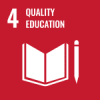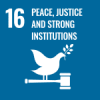Business Law Community, Faculty of Law of UGM held an online seminar entitled “Webinars and Book Review of Sharia Tourism Law in ASEAN” on Wednesday (7/7).
The Minister of Tourism and Creative Economy of the Republic of Indonesia, Dr. Sandiaga Salahuddin Uno, explained that currently Indonesia is ranked fourth on the Global Islamic Economy Indicator 2020 behind Malaysia, Saudi Arabia, and the UAE. This position is one rank higher than the previous position in 2019.
Furthermore, Sandiaga Uno said that Indonesia’s position in the Halal Food sector increased from the previous year, which was not in the top 10, to the 4th position. The Islamic Finance sector is in 6th position, 1 place lower than 2019. The Muslim-Friendly Travel sector is in 6th position, down two places from 2019. The modest fashion sector is in 3rd place and has not experienced a change in ranking from 2019. The Pharm & Cosmetics sector is in the 6th position, and Indonesia did not enter the top 10 in 2019. Lastly, Indonesia’s media & recreation sector is ranked 5th, higher than in 2019 where Indonesia did not make it to the top 10.
When viewed from the aspect of Muslim tourist destinations worldwide, Indonesia is ranked first along with Malaysia with a score of 78, an increase from 2018 which was ranked second. Three ASEAN countries with a majority Muslim population, namely Indonesia, Malaysia, and Brunei Darussalam become tourist destinations for Muslim travelers in the world.
“These 10 Muslim-friendly tourism destinations in Indonesia are interesting. We already have world-class winners, particularly Lombok, Aceh, West Sumatra, Jakarta, West Java, Central Java, East Java, DIY, Riau and Riau Islands, and South Sulawesi. These are promising destinations for future developments,” said Sandiaga.
To develop halal tourism, Sandiaga explained that the government has made adaptations and innovations through digitalization. For example, the government encourages the movement to buy Indonesian halal products, the development of sharia-based digital wallet applications, and collaboration between stakeholders such as collaboration with the Ministry of Religious Affairs, MUI, the Halal Certification Body (BPJPH), etc.
Professor of the Faculty of Law UGM, Professor M. Hawin added that the book “Islamic Tourism Law in Indonesia” by Dr. Reza Zaki Lecturer of Business Law at BINUS University is interesting and popular because the topic is not much discussed in books.
“In general, this book is good, but the legal studies still need to be developed. It still needs to be expanded in terms of international trade law, especially the WTO, GATS, and agreements in the service sector at the ASEAN level. The ASEAN-level agreement framework that needs to be developed includes the ASEAN Trades in Services Agreement that existed in October 2020,” he said.
According to him, the ASEAN Trades in Services Agreement is different from the national treatment in the GATS (General Agreement on Trade in Services).
“In GATS, national treatment only applies to sectors that are committed by WTO member countries. So, it doesn’t apply to the general public. It is interesting to study and develop the book topic,” he said.
Source: https://ugm.ac.id/id/berita/21347-hukum-pariwisata-syariah-di-asean



